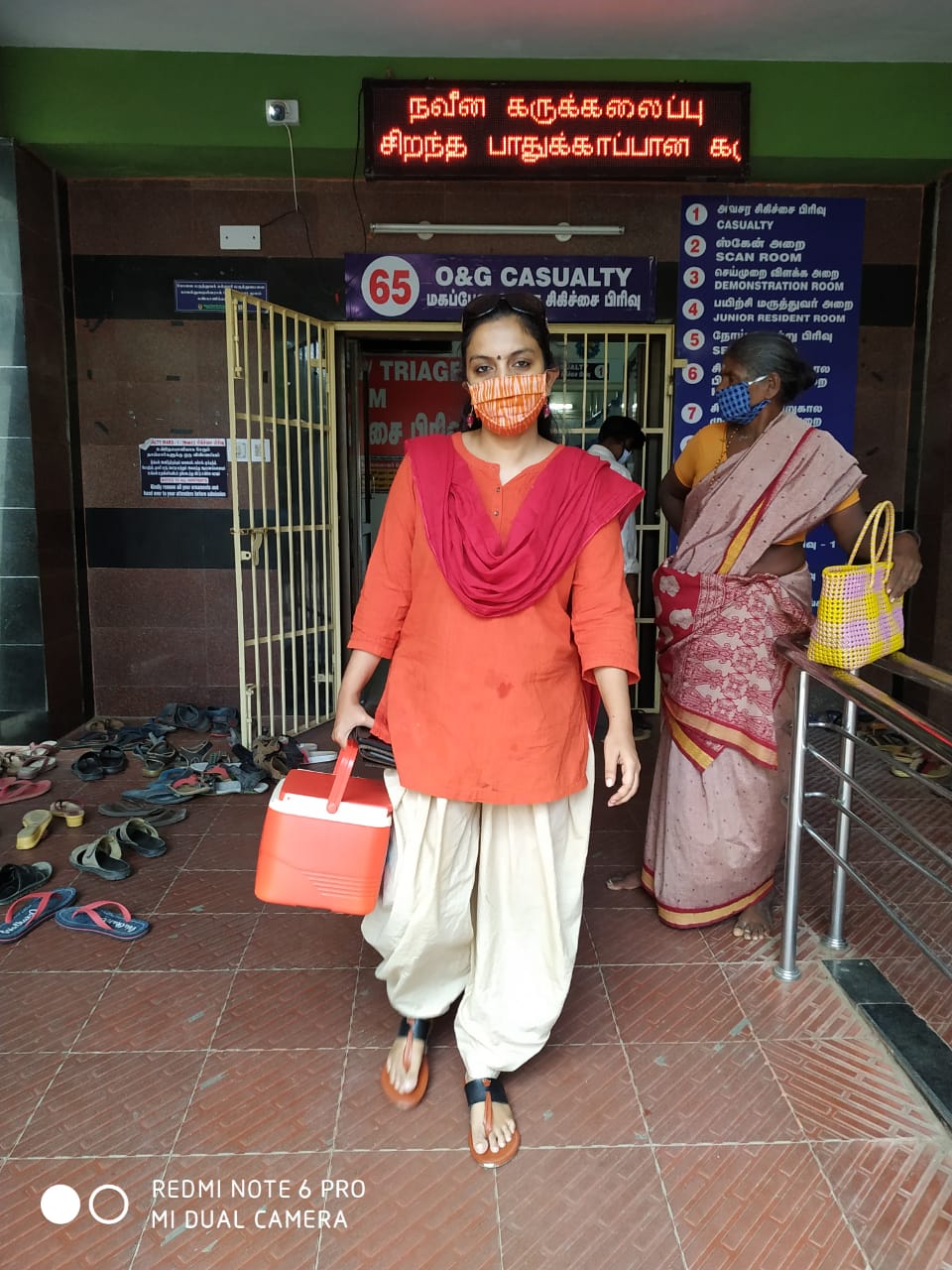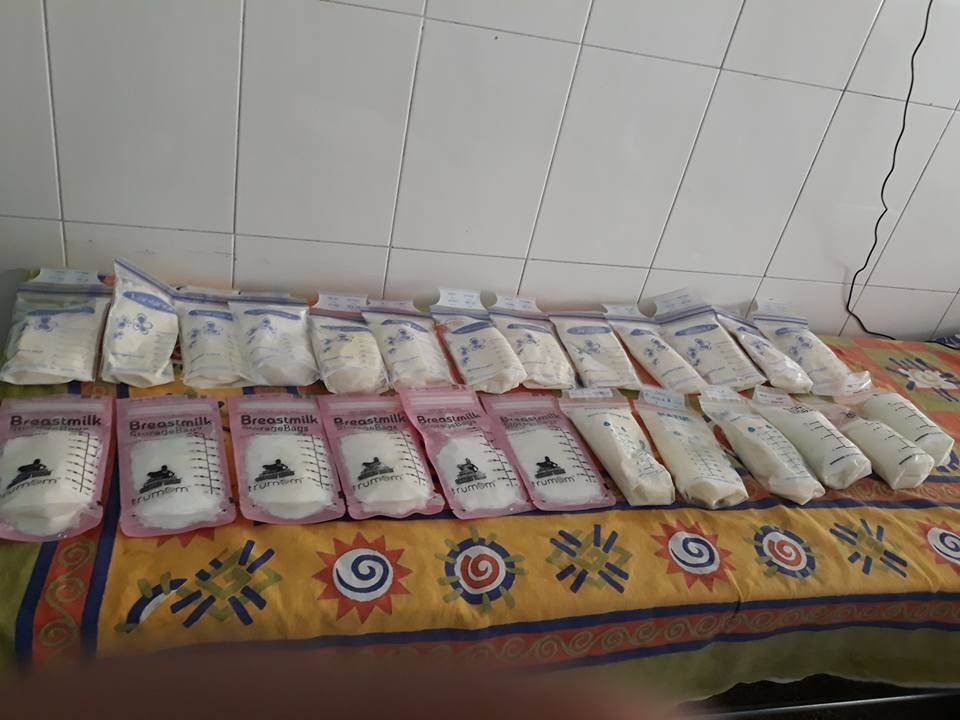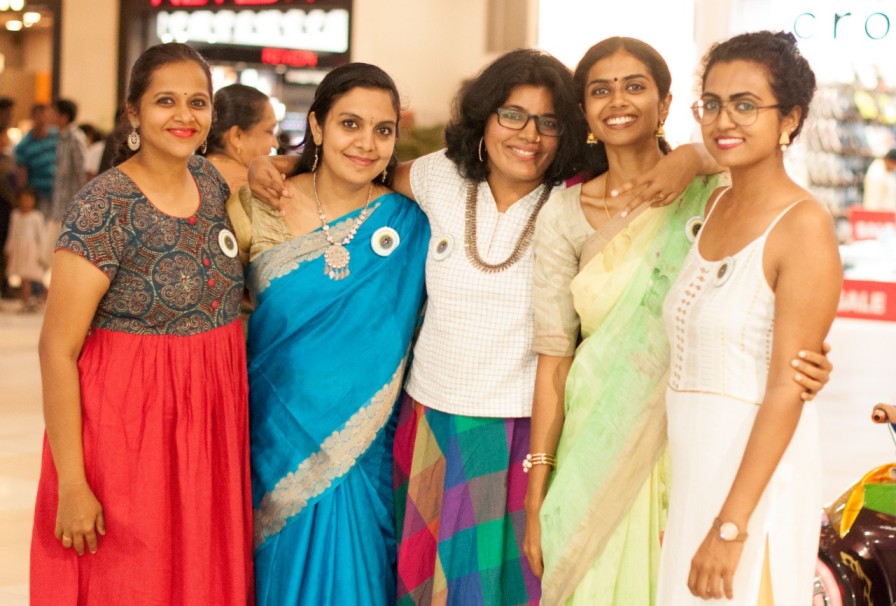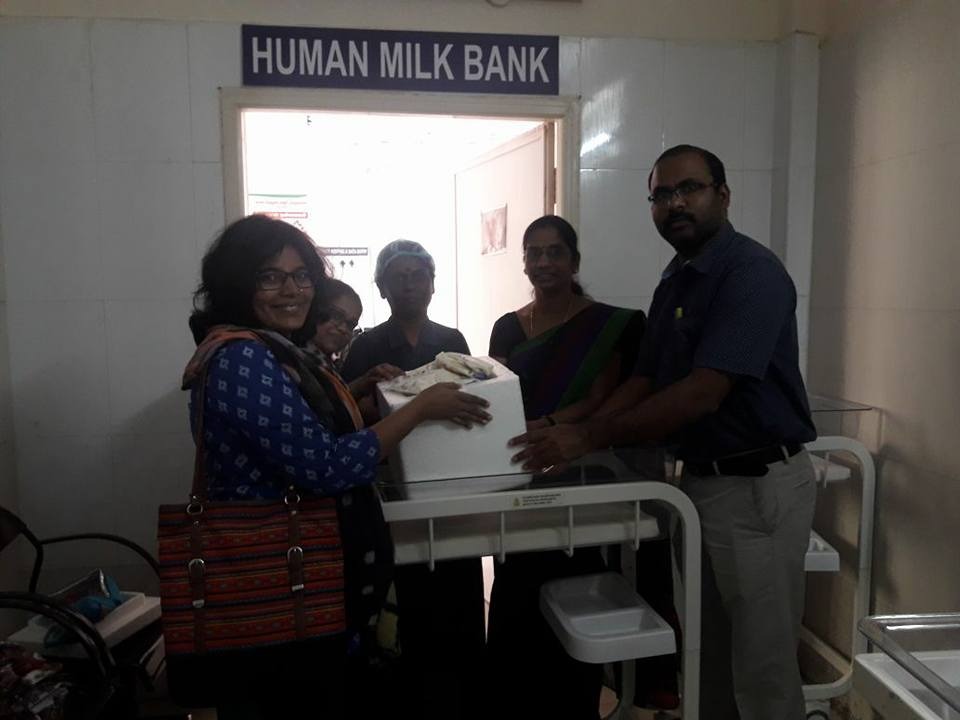After delivering her second born, Coimbatore-based Dr M Aishwarya slipped into postpartum depression. Having recently separated from her husband, she was now a single parent to a 3.5-year-old daughter and her newborn son. Reeling under the financial, emotional and social responsibilities of her new role, she reached out to a mothers’ group that, along with her family’s support, helped her overcome her anxieties gradually.
However, this incident instilled in her a drive to give back to society by spreading awareness on maternity topics such as breastfeeding, milk donation and the mental health of new mothers.
Meanwhile, since 2016, Dr Aishwarya had been part of the Coimbatore Parenting Network (CPN), an organisation that spreads awareness on correct breastfeed techniques, postpartum depression, and presence of breast milk banks. “But I wanted to do more. Like many new mothers, I was also unaware of the significance of breastfeeding, something that is often shamed in our conservative society. People warned me against my child’s dependency on it, which could lead to him asking for milk in public. Lack of designated nursing rooms available in public for women would invite stares and objectification, I was told. I failed to understand why an infant’s food source was considered to be promiscuous behaviour,” she tells The Better India.

So with an aim to bridge the knowledge gap, Dr Aishwarya has been spearheading a breastmilk donation drive called ‘Uyirthuli’. In the last 4-5 years, she has encouraged more than 300 mothers to donate excess milk and help infants without mothers. The organisation donates to the Coimbatore Medical College Hospital and other banks in the city.
We speak to Dr Aishwarya about the benefits of breastmilk, as well as the ways of donation, especially at a time when many mothers are dying due to COVID-19 complications.
Benefits of breast milk donation
If given within an hour of birth, breast milk can reduce the infant mortality rate by 22%. The milk is rich in antibodies that help develop the infant’s immunity.
“Breast milk should be given compulsorily for six months. Beyond this, it should ideally be given for a year or till the baby’s weaning period begins. It can reduce risks of respiratory illness, allergies, and bacterial infections in the baby. I often see adults shaming women for being ‘indecent’ if they breastfeed in public but the very same people don’t mind giving an aerated drink to an infant. These accusations are precisely why women are shy to come forward to donate milk. Ultimately, abandoned, premature babies and ones who have lost their mothers suffer,” says Dr Aishwarya.

She also holds myths and misconceptions responsible for further preventing mothers from having a healthy and open dialogue on the topic.
“I get all kinds of queries that startle me. Some women say they don’t feed after a year as the baby’s teeth will hurt them or they will lose nutrients if they donate. Some believe that after donation there won’t be much milk left for their babies. All of this is untrue. I have donated several times and lactating mothers do not run out of milk or nutrients,” she adds.
Through workshops and awareness sessions, Dr Aishwarya, with CPN members including Swathi Jagdish, Gotha Hari Priya, Kumutha Chandrika K and Minu Gnanamoorthy, helps mothers unlearn traditional misconceptions by providing information backed by science and health experts.

“CPN takes workshops on sustainable living, using cloth diapers, breastmilk donation drives, parenting, maternal rights and so on. We have more than 10,000 members on our Facebook group. A mother can donate anywhere between 100 to 300 ml per day and that amount can feed up to ten babies. The milk is sanitised and replenished before giving it to the child,” says Dr Aishwarya.
Significance amid COVID-19

Along with requests for essentials such as beds, oxygen cylinders and medicines, social media has also seen a spike in inquiries for breastmilk, especially for newborns whose mothers have lost their lives to COVID-19, as well as for infants separated from lactating mothers due to the infection. In such a scenario, donor’s milk comes in handy.
“Every milk bank has a set of guidelines to be followed in the pandemic. Some banks will ask a mother for a negative COVID-19 report, some will do a blood test. The bank collects, screens, and processes the human milk before giving it to the recipient,” says Aishwarya.
Ketan Bharadva, president of the Human Milk Banking Association (India) and head of the Infant and Young Child Feeding Chapter of the Indian Academy of Paediatrics, told PTI, “Sourcing milk from milk banks is safe during COVID. If a mother’s milk is not available for whatever reason, the next best option for such infants is pasteurized donor human milk from a scientifically operated standard milk bank.”
Dr Aishwarya says their milk donation drive has picked up in Coimbatore and several lactating mothers are coming forward to meet the demand, “We are taking online workshops and even clearing doubts on the phone. I urge mothers across India to reach out to their nearest milk bank and donate. If you have any queries you can reach out to CPN or get them cleared by calling the donation centre.”
For queries, more information or to donate, you can reach out to Coimbatore Parenting Network here.
Edited by Divya Sethu
No comments:
Post a Comment